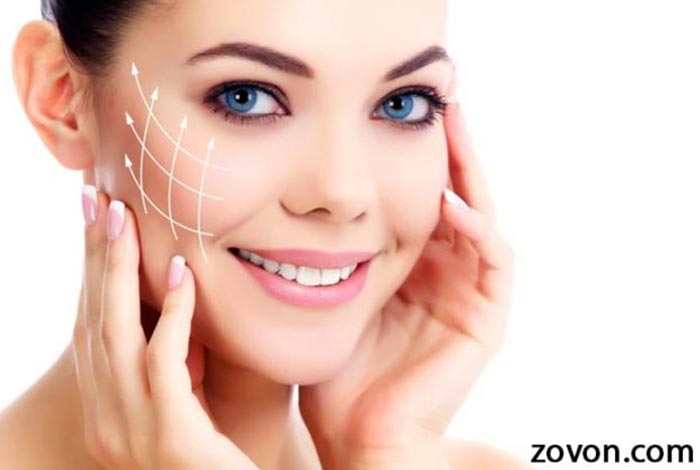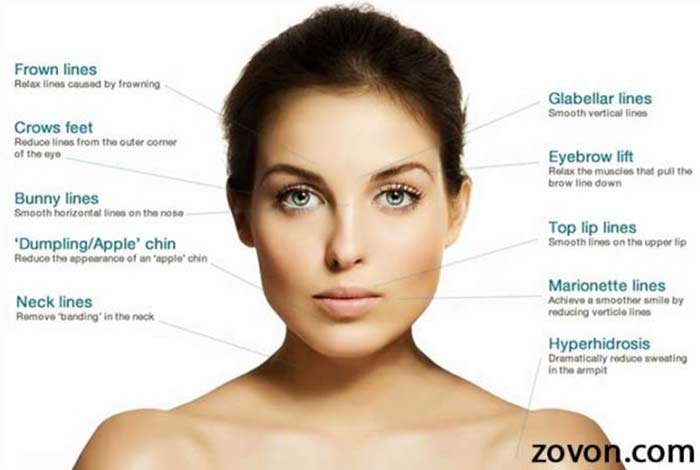
Botulinum Toxin commonly known as Botox is a neurotoxic protein. Botox is a drug prepared by purifying the toxins produced by Clostridium botulinum and its related species. The injection of botulinum toxin, commonly known as Botox, has become very popular for reducing wrinkles and rejuvenating the aging face.
Doctors use small concentrations of Botox in medical treatment. This anti-aging treatment is non-surgical and minimally invasive thus making it very popular. Its effects last for 4 to six months. The procedure involves injecting a diluted version of the botulinum toxin into facial muscles which relaxes them and makes them unable to contract.
 Botox is synthesized from Human Plasma but despite being a derivative from blood, Botox is a dangerous toxin that causes diseases in human beings. It affects the neuromuscular junction and interrupts the release of the neurotransmitter acetylcholine from the axon causing weakness, paralysis or reduces the muscle tone of the body.
Botox is synthesized from Human Plasma but despite being a derivative from blood, Botox is a dangerous toxin that causes diseases in human beings. It affects the neuromuscular junction and interrupts the release of the neurotransmitter acetylcholine from the axon causing weakness, paralysis or reduces the muscle tone of the body.
Types of Botox
Botox is characterized as Type A to H. All of them are harmful and can cause various health issues. However, a controlled amount of Type A and B Botox is used for Medicare purposes. Type C-G is less common and can cause diseases in human beings and animals. However, the most dangerous Botox toxin is Type-H and if only 2 billionths of a gram is injected into the human body can result in death.
How does Botox work?

Botox, despite being toxic is utilized by medical professionals widely in the field of health and skin care. Medical professionals use Botox in limited and in very dilute form to treat skin problems like wrinkles. As Botox toxin is used to interrupt the nervous system, a small amount of Botox temporarily paralyzes the muscles and is effective for the treatment of wrinkles. Other than skin care, Botox is widely used in the healthcare industry to treat stiffness and contractions in muscles.
Botox: Uses and Applications:

It is widely used in the form of injections. It has many lifestyle supporting uses and applications:
- Botox is used in skin care, as it is capable of temporarily paralyzing the muscles and thereby reducing the wrinkles. A limited amount of Botox can help with temporary paralysis and treat aging skin problems such as wrinkles.
- Botox is used to treat various muscular problems like Cervical Dystonia (contraction in neck muscles) and Muscle Stiffness in the upper or lower limbs.
- It is also used to treat hyperhidrosis i.e. Heavy underarm sweating.
- There are certain eye disorders that are caused by nervous system malfunctions. However, Botox being a neurotoxin can help in curing eye disorders such as uncontrolled blinking of eyes, stiff eyelids or
- There are certain eye disorders that are caused by nervous system malfunctions. However, Botox being a neurotoxin can help in curing eye disorders such as uncontrolled blinking of eyes, stiff eyelids or cockeyedness.
- It is also used to treat other nervous health issues like chronic migraine pain and the problems associated with injuries to the spinal cord.
- Botox is also used to cure the problem of overactive bladder or unrestraint urination. This problem is usually caused by neurological disorders and thus Botox being a neurotoxin is useful in curing this problem.
Botox is widely used in the healthcare industry for treatment of muscles and skin but there are some other fields that are under study for the utilization of Botox. These are:
- Depression
- Premature ejaculation
- Abnormal heartbeat
- Painful Sex
Role of Botox in treating above conditions is currently being researched. Read more…
Side Effects and Warnings
Botox being a neurotoxin has various side effects, which are described below.
- The use of clinical botox is considered safe by medical professionals, but the wrong injection of Botox might result in paralysis.
- If it is not so, direct paralysis Botox can cause problems like a headache and allergic reactions to various things.
- Partial Face Paralysis also called Bell’s palsy is also a side effect of Botox.
However, these side effects can’t be avoided by precautions. The advice of a professional physician and proper medication can help with these side effects.
Even before using Botox, you should keep following warnings in mind:
- There should be no infection in the areas where the botox would be injected. If you have an infection at the injecting spot you should avoid using Botox.
- If you have any kind of bladder or urinatory problem such as no urination or if you use a catheter, you should avoid using botox on your body.
- If you have any kind of heart disease or facial muscle weakness you should avoid using Botox.
Products

Botox is available in the form of injections and some of the famous Botox Type A Injections that are used for cosmetic surgeries and medication are:
- Allergan
- Azzalure
- Boconture
- Botox
- Dysport
- Neurobloc
- Vistabel
- Xenomin
FAQs: What people normally want to know about Botox in Anti-Aging solutions?
1: How long do the effects of Botox last?
Usually, they last for about 3 months.
2: How can we increase the life of Botox effects?
Oral Zinc supplements are useful if you want to increase the duration of Botox effects.
3: How often can I use Botox? Is it harmful to long-term use?
You can use it once you see wrinkles growing on your skin again. However, It is not completely clear that if it’s long-term use is harmful or not but with time your body develops antibodies that can fight the botox neurotoxins.
4: How long it takes for Botox to show results?
If injected properly you can observe the results after a few days of the first injection.
5: Can I inject Botox myself?
No, Botox is a prescribed drug and needs the prescription from a verified expert and only be injected under his/her supervision
6: What will happen if I stop using botox? Will it make the wrinkle condition worse?
If you stop using Botox your wrinkles will appear after the effect of Botox wore off but it won’t worsen the condition, It’ll remain the same.
7: What are Botox’s effect on blood pressure?
If injected properly, Botox has no effects on blood pressure.
8: Is Botox effective for all kind of Paralysis?
No, Botox is not effective for every kind of paralysis. It is used to loosen the contacted muscles only and its effects completely depend on the kind of the Paralysis.










